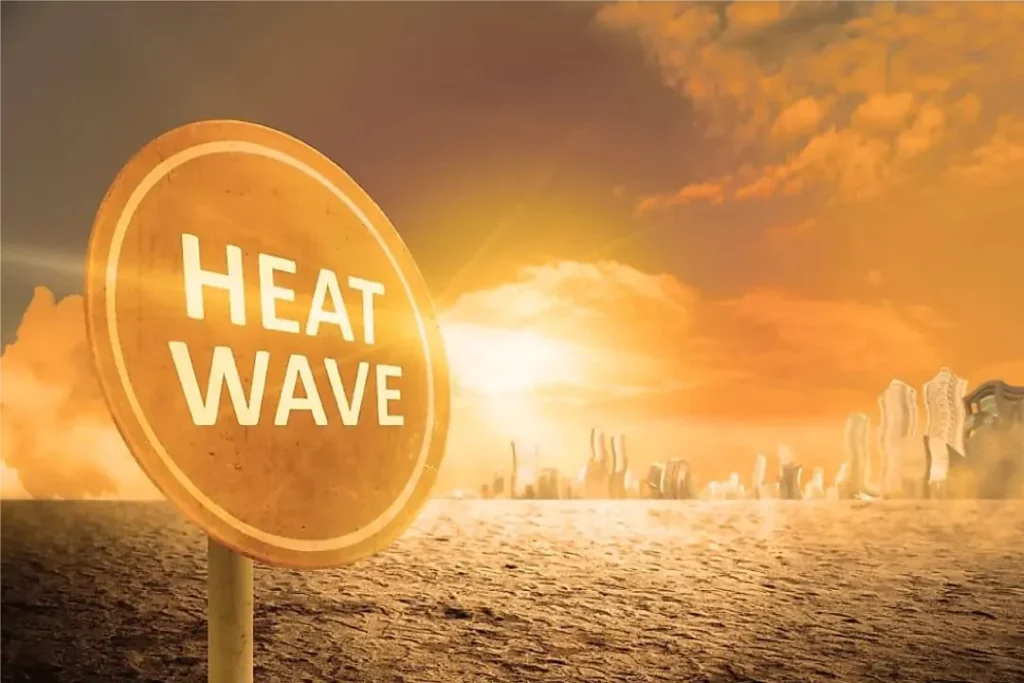Summer’s great and all—sunshine, pool days, BBQs with family and friends. But you know what’s not so great? The way extreme summer heat can seriously put your home at risk. We’re talking heatwaves, wildfires, power outages, and the kind of dry weather that can turn a little spark into a big disaster.
At ERX (Emergency Restoration Xperts), we’ve seen firsthand what summer damage can do to homes and families. So let’s break down how you can keep your house (and everyone in it) safe when temps start soaring.
Why Summer Brings More Risk
When it gets hot—really hot—your house takes a beating. Here’s why:
- Dried-out grass and trees = fire fuel
- Overloaded power systems = higher fire risk
- Cracked or dry roofs/siding = less protection
- Lightning storms = unexpected fire triggers
- Grills and fire pits = fun, but risky if not handled right
When a heatwave rolls in, your home can go from safe to vulnerable pretty fast if you’re not prepared.
Tip 1: Create a “Defensible Space” Around Your Home
This just means clearing out flammable stuff near your house. Here’s how:
- Trim dead branches or bushes
- Keep your lawn cut and watered (but watch for water bans)
- Rake up dry leaves and pine needles
- Move firewood piles away from the house
- Don’t store propane tanks or gas cans near siding or garages
Think of it like giving your house a little breathing room.
Tip 2: Check Your Roof and Gutters
You’d be surprised how many fires start from dry leaves stuck in gutters or loose shingles that let sparks sneak in.
- Clean out gutters and downspouts
- Replace cracked or missing shingles
- If you live in a high-risk area, think about fire-resistant roofing
A strong, clean roof could be the one thing that saves your home if embers start flying.
Tip 3: Keep the Air Moving Inside
Hot, stagnant air inside can make everything feel worse. Plus, if there’s smoke nearby (from wildfires), it can creep in through cracks.
- Use fans and AC wisely (don’t overdo it)
- Change HVAC filters regularly
- Keep windows and doors sealed when smoke is present outside
- Use air purifiers with HEPA filters to clean indoor air
If your home gets smoky or smells weird, call ERX. Smoke damage isn’t just about smell—it can hurt your lungs and your home.
Tip 4: Use Fire Features Safely
Grilling and backyard fires are fun, no doubt. But they also send more homes to the ER than you’d think.
- Keep grills at least 10 feet from your home or deck
- Never leave a fire pit or flame unattended
- Douse fires completely when you’re done
- Keep a hose or extinguisher nearby just in case
One little ember can land in the wrong spot and start a disaster. Be smart, not sorry.
Tip 5: Prepare for Power Outages
During a heatwave, power grids can go down. And that’s when things get dicey.
- Have flashlights, batteries, and bottled water ready
- Keep your fridge and freezer closed during outages
- Unplug electronics to avoid surge damage
- Consider a backup generator (but use it safely—outside only!)
Don’t wait until the lights go out to figure out what you need.
Tip 6: Know the Signs of Heat-Related Fire Risk
Here are a few warning signs your home might be at risk:
- Dead, dry landscaping close to your house
- Old or overloaded electrical outlets
- Cracking paint or siding (can be flammable)
- Tripped breakers (could signal overloaded circuits)
If you’re seeing any of these, it’s time to act now—not later.
Tip 7: Make a Summer Emergency Plan
Don’t wing it in a crisis. Here’s what to do:
- Know your local fire and weather alert systems
- Keep important documents in a fire-safe box
- Have a “go bag” ready with essentials (meds, clothes, ID)
- Plan 2 escape routes from your house
- Pick a meet-up spot for your family
You don’t need to panic—but you do need to be prepared.
FAQs: Protecting Your Home During Heatwaves and Fire Season
Q: What should I do if my home smells like smoke, but there’s no fire?
A: First, make sure there’s no fire nearby. If it’s just outside smoke, close all windows and run air purifiers. If the smell lingers or you’re worried about smoke damage, call ERX.
Q: How do I know if my siding or roof is fire-resistant?
A: Check with your contractor or look at your home inspection paperwork. If you’re not sure, we can help assess your home’s fire protection level.
Q: Can I use fans during a power outage?
A: Battery-powered ones, yes. Just be careful about using generators—keep them outdoors and never in a garage or inside your home.
Q: What should be in my emergency “go bag”?
A: A few basics: water, snacks, phone charger, ID, a change of clothes, cash, flashlight, medications, and copies of insurance and emergency contacts.
Q: Can ERX help with fire prevention tips or home inspections?
A: Absolutely. Our team offers emergency readiness guidance and inspections for homes in high-risk zones. Better safe than sorry.
Stay Cool. Stay Safe. Stay Ready with ERX.
When heatwaves hit and the fire risk goes up, the last thing you want is to be caught off guard. With a little planning and some smart maintenance, you can protect your home, your stuff, and the people you love.
And if something does go wrong?
ERX is here 24/7. We handle fire damage, smoke cleanup, emergency board-ups, and more.
Call us at (866) 217-7903 or visit erx247.com for help fast.
You take care of your summer fun—we’ll take care of the rest.

